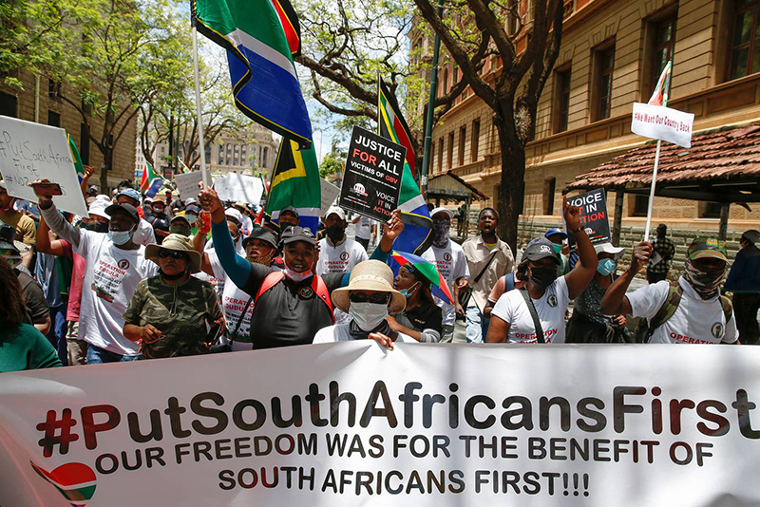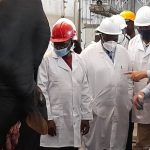The repatriation of our nationals from South Africa means our two sister governments have to work and collaborate closely. My excellent meeting with President Ramaphosa paved the way for this collaborative work to begin. I am aware that our nationals are found in different parts, towns and cities of South Africa; most notably, in the provinces of Gauteng, Eastern and Western Cape, Limpopo and KwaZulu-Natal.
We need the support of the South African authorities to securely move our dispersed nationals back home without incident. President Ramaphosa assured me of maximum support of his government on this matter in order to make the repatriation an unqualified success. As I write, officials of our two governments continue to meet in preparation for the exercise.
Our mapping team is set to leave for South Africa this week. The team comprises officials from many different Government departments to ensure preparations are comprehensive and attend to every detail. The team includes medical experts and officials from several ministries, including those from Primary and Secondary Education. We have to ensure that pupils already in South African schools are not prejudiced during the translocation of families. They have to be re-inserted in classes with minimum disruption. We also need to ensure families which had acquired assets do not lose out as they relocate back home.
Those assets will give them a head-start as they resume life back home. Our medical experts will ensure that the whole programme is alive to issues of public health, principally risks posed by Covid-19 infections as our people move back.
My meeting with Professor Antonio Vitorino of IOM ensured the United Nations gets involved, and that all its expectations during the migration exercise are fully met. In that meeting, I emphasised two critical areas, namely, the need for a comprehensive mapping exercise of all migrants coming back home; and the need for a combined strategy of our Government and IOM in facilitating the re-integration of our nationals both in host communities and in different sectors of the receiving economy.
The mapping exercise will identify all those who are set to come back home: by name, by family, by location, by current sources of livelihood, by assets accumulated over time and, more important, by occupation or skills brought into or acquired during their stay in South Africa. Such comprehensive mapping will allow us to prepare for the homecoming of our nationals, as well as identifying start-up and employment opportunities for them once they are in the country. IOM’s vast experience in this area will assist us enormously. I am happy that IOM is already working closely with our officials in this exercise.
Why is it important for us to welcome back our returning citizens? Fundamentally, because this is their home, which means it is their inalienable right to be accommodated back in their homeland. In leaving the country to scout for opportunities, they never renounced their citizenship; if anything, they became even more acutely aware of its value and the need for it to assure them of a permanent place they call home.
Continued next page
(225 VIEWS)


